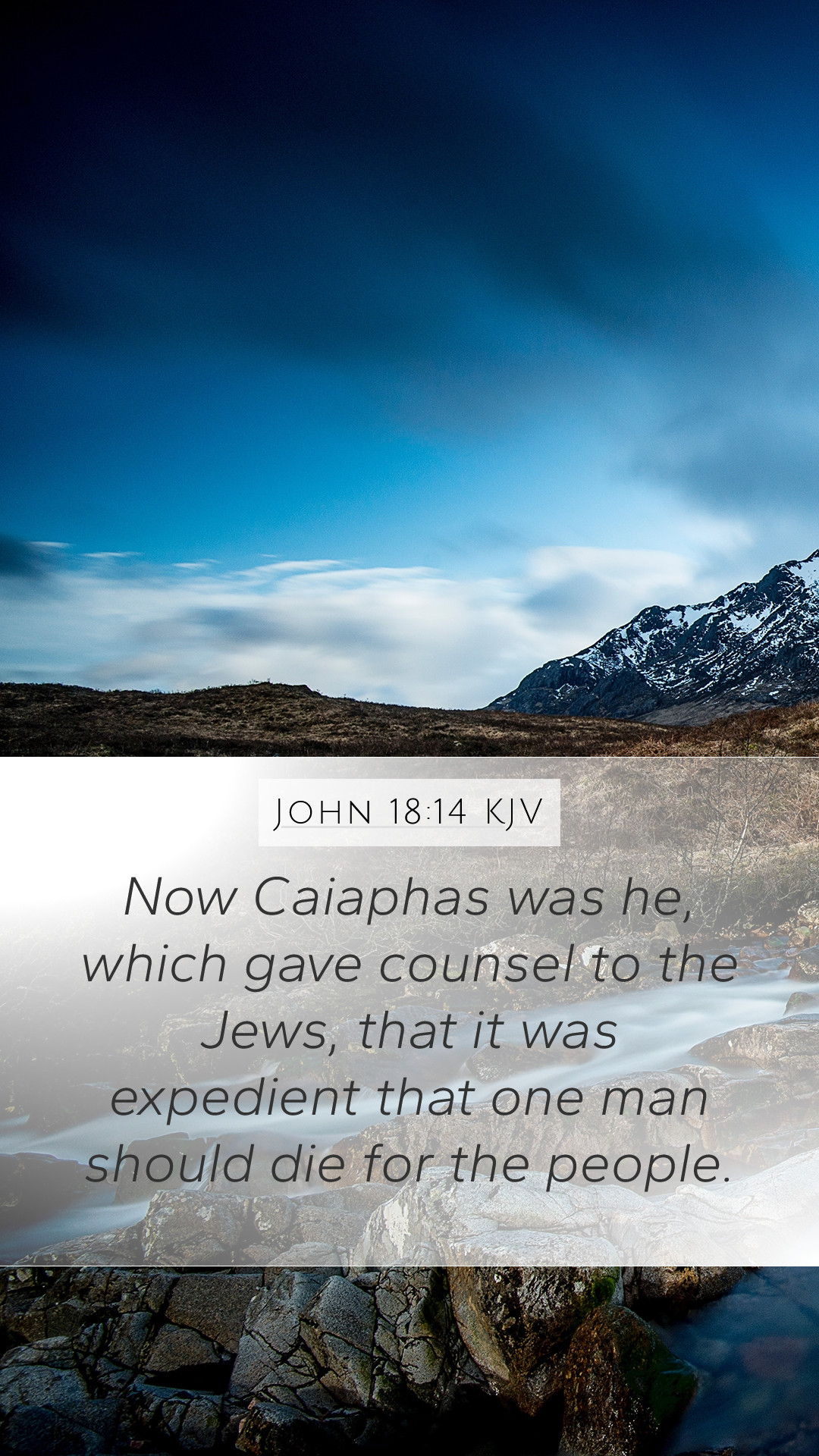Understanding John 18:14
John 18:14 states: "Now Caiaphas was he, which gave counsel to the Jews, that it was expedient that one man should die for the people."
This verse is significant because it reflects a pivotal moment in the narrative leading to the passion of Christ. It captures the essence of the sacrificial role of Jesus and the fulfillment of prophecies regarding His death.
Historical Context
The events surrounding John 18:14 occur during the trial of Jesus. Caiaphas, as the high priest, plays a crucial role in the decisions leading to Jesus’ crucifixion. His proposition that one man should die for the people echoes the theme of substitutionary atonement that runs throughout the New Testament.
Bible Verse Meanings and Interpretations
-
Matthew Henry's Commentary:
Henry emphasizes that Caiaphas unwittingly proclaims a profound truth. His suggestion reveals how God orchestrated events for the salvation of humanity. Though merely a political maneuver, it serves a higher purpose, illustrating God’s sovereign plan.
-
Albert Barnes' Notes:
Barnes highlights the irony in Caiaphas’ statement. Intended to justify Jesus’ execution politically, it ironically points to Jesus’ salvific mission. Barnes draws attention to the concept that Jesus’ death is for all, fulfilling the greater good for the Jewish people.
-
Adam Clarke’s Commentary:
Clarke elaborates on the necessity of Jesus’ sacrifice by referencing Old Testament atonement practices. The phrase "expedient that one man should die" suggests that Jesus’ death was a divinely ordained act to redeem mankind, mirroring the sacrificial system that predated His coming.
Significance of the Quote
The phrase "one man should die for the people" encapsulates the essence of Christ's mission. It signifies the transition from the Old Covenant to the New Covenant. This verse highlights themes of sacrifice, redemption, and divine purpose.
Cross-References
- Isaiah 53:5: "But he was pierced for our transgressions, he was crushed for our iniquities..." - A prophetic reference to the suffering servant.
- Romans 5:8: "But God commendeth his love toward us, in that, while we were yet sinners, Christ died for us." - Explanation of the significance of Jesus’ death.
- 1 Peter 2:24: "Who his own self bare our sins in his own body on the tree..." - Relates to the concept of Christ bearing our sins.
Application of John 18:14
Understanding this verse can profoundly impact one’s life. Realizing that Jesus died as a substitute for humanity helps believers appreciate the gravity of His sacrifice. This understanding invites believers into a deeper relationship with God and encourages them to live in a way that reflects this gift of grace.
In-Depth Analysis: How to Interpret John 18:14
When studying John 18:14, consider the broader context of the Gospel of John. Understanding Caiaphas’ role within the Jewish leadership and the political climate of the time enhances one’s comprehension of this pivotal statement. Also, exploring themes of atonement in the wider Biblical narrative will enrich your insight.


